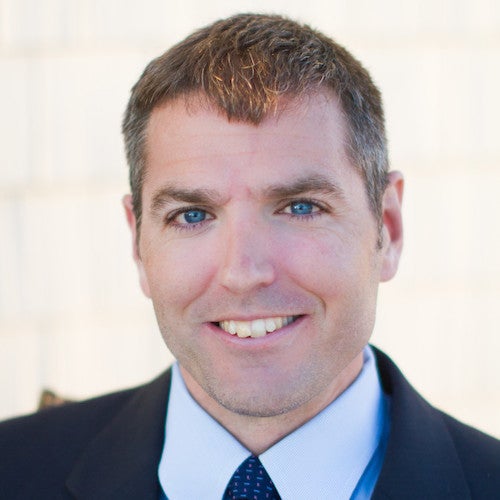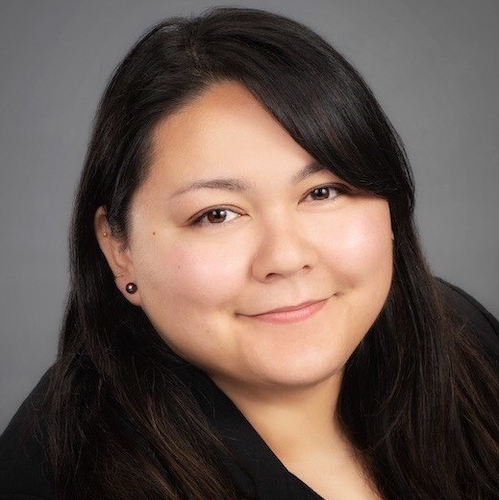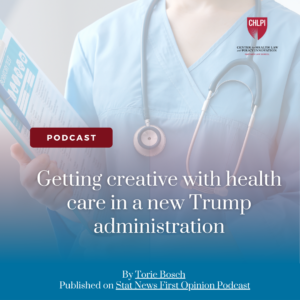Center for Health Law and Policy Innovation represents five families challenging Louisiana ban on gender-affirming care for transgender minors
Mar 19, 2024 By Rachel Reed. Originally published on Harvard Law Today
A new Louisiana law prohibits access to crucial medical care for transgender youth — while allowing the same kinds of treatments for other children — which is illegal under the state’s constitution, contend students and advocates at Harvard Law School’s Center for Health Law and Policy Innovation. The clinic and its legal partners filed suit in January against Louisiana’s Health Care Ban, hoping to put a halt to a law that they say also violates the rights of trans minors and their families — and may even put them in danger.
“This can be a life-or-death situation,” says Madeleine Jackman ’25, a clinical student who was enrolled in the Health Law and Policy Clinic during the fall semester. “When you have a group of people who are often already in very vulnerable positions, who are then also being denied treatment that is medically necessary for them — it can be devastating.”
The clinic is working with Lambda Legal and Davis Polk & Wardwell LLP to challenge the ban, which was passed last year by the state’s legislature in a vote overriding a veto by Governor John Bel Edwards.
The new law prohibits a range of different types of treatment for gender dysphoria, recognized by the American Psychiatric Association as the diagnostic term for the clinically significant distress that results from the lack of congruence between a person’s gender identity and their sex assigned at birth. The banned treatments include puberty-delaying medication, gender-affirming hormone therapy, and certain surgeries for transgender minors, even if their doctor and their parents have agreed the treatment is appropriate, says Suzanne Davies, a clinical fellow with the Health Law and Policy Clinic. Such care has been recognized as medically necessary treatment for gender dysphoria by the American Medical Association, among other major medical and scientific organizations.
“[The new law] explicitly singles out trans youth. … The same procedures and medications are still available to cisgender children who may need them for different reasons. It’s the very definition of an Equal Protection violation.” Suzanne Davies
Worse, Davies adds, “it does so in a way that explicitly singles out trans youth. Under the law, those same procedures and those same medications are still available to cisgender children who may need them for different reasons. It’s the very definition of an Equal Protection violation.”
Davies says the bill, which went into effect on January 1, is already having a detrimental impact on trans youth in the Pelican State.
“Youths who are at the very beginning of puberty are no longer able to access puberty delaying medications, which are important because they give trans kids a chance to put their puberty on pause while they work with their parents and medical team to figure out next steps for their care,” she says. “And older kids who need hormone therapy to treat gender dysphoria are not going to be able to get hormone therapy.”
The ban impacts both current and future patients, says Davies. The law contains a grandfather clause permitting some minors who have already begun to receive medical care to continue for up to one year, but she says that the provision is ambiguous and has caused confusion for providers. “Many of the already very few providers of gender-affirming care have left the state. As a result, it’s becoming increasingly difficult, even for families whose children should have qualified for that one-year period where they were still able to get care, to get the medically necessary care they need.”
Building the suit
The CHLPI team, which includes Davies and two clinic students, along with Clinical Instructor Maryanne Tomazic and Litigation Director Kevin Costello, began by connecting with health care providers and legal partners on the ground in Louisiana to identify five youths who were denied care under the new law. “It was incredible to work with both the minors and their families,” says Jackman. “Not only are they balancing trying to grow up and access the medically necessary care that they need, but they’re also willing to take a stand in this lawsuit and everything that that entails.”
The families have had a range of different experiences under the law, adds Davies. What they have in common, she says, is a fear of what will happen if they cannot receive the medical support they need in their home state.


Jackman says that she benefitted immensely from working alongside co-counsel, the health care providers, and advocacy organizations on the case. “I came in as a clinic student during a really unique time where the case was in the process of just getting off the ground,” she says. “We were able to think through different legal strategies and decide which claims we wanted to bring. I got to do a lot of legal research and writing and thinking about what narratives we wanted to advance to represent the transgender kids who are impacted in the most true and effective way.”
After strategizing with the families, the team decided to bring only claims under Louisiana state law — different from some of the other cases challenging similar bans nationwide, which brought claims under federal law, says Davies. Because the law singles out trans people, the team argues, it is in violation of the equal protection clause of the Louisiana State constitution, on the basis of both sex and trans status.
“Even just bringing this lawsuit and continuing to push back against these unconstitutional laws hopefully affirms to some of the adolescents who are impacted that they do belong in the state, and that they do deserve the same care that all the other kids and adults in the state receive.”Madeleine Jackman ’25
Davies says the ban also undermines a parent’s right to direct the care and upbringing of their child, including making important medical decisions. Finally, the team contends that the law interferes with a more basic right to personal bodily autonomy. “In Louisiana, this extends explicitly to the right of a patient to decide whether they want to obtain or reject medical treatment,” Davies says.
Although the lawsuit has been filed — a cause for celebration, says Davies — the clinic’s work has just begun, with the first hearing scheduled for April 19. “Things are going to start to move very quickly,” she adds. “I think the clinic students that we have this semester are going to be able to contribute to this work in meaningful ways. There’s going to be a lot to do.”
Jackman says that she hopes the lawsuit will eventually be successful in overturning the law and allowing minors to access care. “Even just bringing this lawsuit and continuing to push back against these unconstitutional laws hopefully affirms to some of the adolescents who are impacted that they do belong in the state, and that they do deserve the same care that all the other kids and adults in the state receive.”
Davies agrees that the stakes are high. “Laws like this one are creating an environment where kids in Louisiana who may be questioning their gender, or who already know they’re trans, are being told that they don’t belong, and they’re being told that the medically necessary care that they need is not okay,” she says. “It’s not just the wrong message to be sending to families, it’s unlawful.”


Health Law & Policy, Commentary
Addressing The HIPAA Blind Spot For Crisis Pregnancy Centers
November 18, 2024